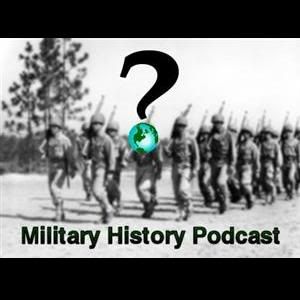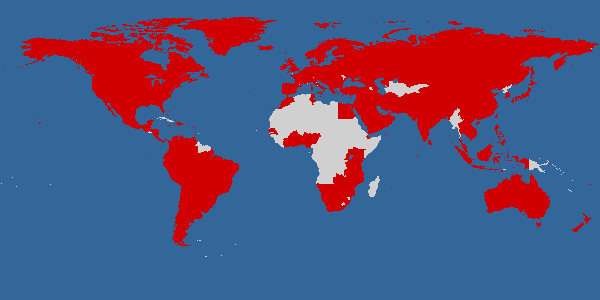The Sword of Allah (Part One)
Listen to "The Sword of Allah (Part One)"
The Sword of Allah refers to Khalid ibn al-Walid, the prophet Mohammad's top general. Khalid commanded over 100 battles and never lost, making him the most undefeated general in history. He usually fought in the front lines either as a cavalry commander or as a champion dueler. This is the first of a two-part episode. This part will cover Khalid's conquests of Arabia and Persia:
Khalid ibn al-Walid originally fought with the Meccan Quraiysh tribe against Mohammad and the Muslims. However, he converted after the Battle of the Trench and joined the forces of Mohammad. His first campaign as a Muslim commander was into Ghassanid Territory to fight the Battle of Mutah, in which he led an expert retreat after the first three Muslim commanders were killed. His second campaign involved attacking south and east in order to conquer the Arabian Peninsula. He participated in the conquest of Mecca and in the Battle of Hunayn.
After Mohammad's death, Abu Bakr took over and formed the Rashidun Caliphate (the first of three great Islamic Empires with the other two being the Umayyad and Abbasid Dynasties). Khalid led the campaign to reconquer all the tribes that left the Muslim confederation after Mohammad's death. Specifically, he commanded the Muslims at the Battle of Yamama, which was fought against the "liar prophet", Musailima.
After the Arabian Peninsula was retaken, Khalid was put in charge of the Rashidun invasion of Iraq (which was held by the Sassanid Persians). Some of the famous battles of the invasion include the Battle of Chains, the Battle of Ullais, the Battle of Hira, and the Battle of Al-Anbar. However, the most famous is the Battle of Walaja, which is known as the eastern Battle of Cannae because of Khalid's successful double envelopment of the Persians. To this day, Khalid and Hannibal are the only ones to pull this off against a numerically superior force. The Battle of Firaz is also important because Khalid defeated a Persian army ten times his own (in numbers).
The second part of this episode will cover Khalid's exploits in Syria.
For more information, read:
Dictionary of Battles by David Chandler
http://www.ezsoftech.com/islamic/ohod.asp
http://islambyquestions.net/moreAbout/Hunayn.htm
http://islam.pakistanway.com/showtopic.aspx?topicid=266&typeid=25
http://www.witness-pioneer.org/vil/Articles/companion/10_abu_bakr.htm
http://www.britannica.com/eb/article-9045249/Khalid-ibn-al-Walid
http://www.witness-pioneer.org/vil/Articles/companion/00_abu_bakr.htm
http://www.islamicawakening.com/viewarticle.php?articleID=1206
http://www.militaryhistoryonline.com/muslimwars/articles/yarmuk.aspx
Military History Podcast is sponsored by Armchair General Magazine
The Sword of Allah refers to Khalid ibn al-Walid, the prophet Mohammad's top general. Khalid commanded over 100 battles and never lost, making him the most undefeated general in history. He usually fought in the front lines either as a cavalry commander or as a champion dueler. This is the first of a two-part episode. This part will cover Khalid's conquests of Arabia and Persia:
Khalid ibn al-Walid originally fought with the Meccan Quraiysh tribe against Mohammad and the Muslims. However, he converted after the Battle of the Trench and joined the forces of Mohammad. His first campaign as a Muslim commander was into Ghassanid Territory to fight the Battle of Mutah, in which he led an expert retreat after the first three Muslim commanders were killed. His second campaign involved attacking south and east in order to conquer the Arabian Peninsula. He participated in the conquest of Mecca and in the Battle of Hunayn.
After Mohammad's death, Abu Bakr took over and formed the Rashidun Caliphate (the first of three great Islamic Empires with the other two being the Umayyad and Abbasid Dynasties). Khalid led the campaign to reconquer all the tribes that left the Muslim confederation after Mohammad's death. Specifically, he commanded the Muslims at the Battle of Yamama, which was fought against the "liar prophet", Musailima.
After the Arabian Peninsula was retaken, Khalid was put in charge of the Rashidun invasion of Iraq (which was held by the Sassanid Persians). Some of the famous battles of the invasion include the Battle of Chains, the Battle of Ullais, the Battle of Hira, and the Battle of Al-Anbar. However, the most famous is the Battle of Walaja, which is known as the eastern Battle of Cannae because of Khalid's successful double envelopment of the Persians. To this day, Khalid and Hannibal are the only ones to pull this off against a numerically superior force. The Battle of Firaz is also important because Khalid defeated a Persian army ten times his own (in numbers).
The second part of this episode will cover Khalid's exploits in Syria.
For more information, read:
Dictionary of Battles by David Chandler
http://www.ezsoftech.com/islamic/ohod.asp
http://islambyquestions.net/moreAbout/Hunayn.htm
http://islam.pakistanway.com/showtopic.aspx?topicid=266&typeid=25
http://www.witness-pioneer.org/vil/Articles/companion/10_abu_bakr.htm
http://www.britannica.com/eb/article-9045249/Khalid-ibn-al-Walid
http://www.witness-pioneer.org/vil/Articles/companion/00_abu_bakr.htm
http://www.islamicawakening.com/viewarticle.php?articleID=1206
http://www.militaryhistoryonline.com/muslimwars/articles/yarmuk.aspx
Military History Podcast is sponsored by Armchair General Magazine




<< Home